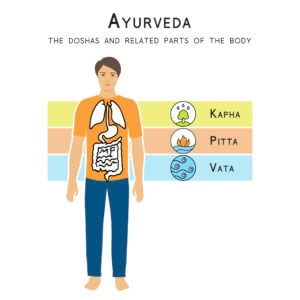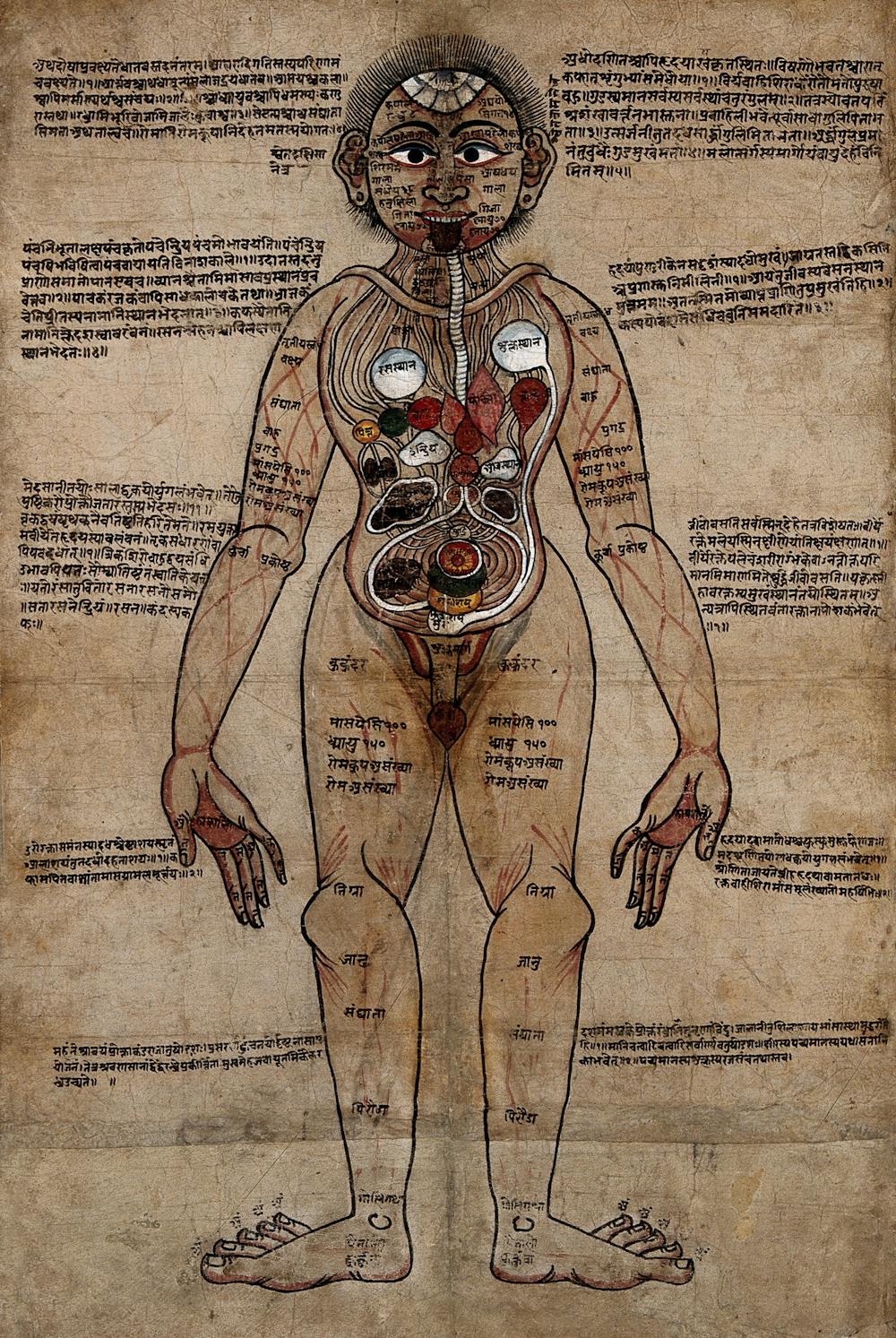How Ayurveda Helps You Achieve Your Wellness Goals Naturally
How Ayurveda Helps You Achieve Your Wellness Goals Naturally
Blog Article
Why You Need to Get It: The Transformative Power of Ayurveda Explained
Ayurveda, a classic system of medication, uses an one-of-a-kind perspective on health and wellness that transcends simple signs and symptom monitoring. As we check out the core principles and techniques of Ayurveda, it comes to be obvious that its transformative potential extends far past standard health and wellness paradigms-- increasing the question of how it might improve your understanding of wellness.
Understanding Ayurveda's Core Principles
Ayurveda, commonly described as the "scientific research of life," is rooted in an alternative strategy to health that intertwines the physical, mental, and spiritual measurements of well-being. Central to Ayurveda are the ideas of the five components, recognized as "Pancha Mahabhuta," which comprise earth, water, fire, ether, and air. These aspects incorporate to develop three primary powers, or "doshas": Vata, Pitta, and Kapha, each representing various mixes of emotional and physical features.


Understanding these doshas is necessary for determining a person's unique constitution, or "Prakriti," which overviews customized health approaches. Ayurveda highlights equilibrium, supporting for a way of life that balances these powers with diet plan, herbal remedies, and everyday regimens. Moreover, Ayurvedic concepts assert that health and wellness is not just the absence of condition but a state of optimum vigor.
The technique of mindfulness and self-awareness is essential, encouraging people to create a deeper connection with their bodies and the environment. By identifying the interaction of physical and emotional factors, Ayurveda advertises a detailed understanding of health that equips individuals to take fee of their health, promoting a path in the direction of holistic change.
Advantages of Ayurvedic Practices
Regularly including Ayurvedic methods into every day life can generate a wide range of advantages that enhance overall health. These time-honored practices concentrate on achieving harmony within the body, mind, and spirit, resulting in enhanced physical health and wellness, mental clearness, and psychological equilibrium.
One considerable benefit of Ayurvedic techniques is their ability to advertise gastrointestinal health and wellness. Personalized nutritional referrals, based on a person's dosha, can optimize nutrient absorption and reduce intestinal problems. Furthermore, Ayurvedic herbs and flavors, such as turmeric and ginger, have anti-inflammatory buildings that can aid in the avoidance and monitoring of persistent conditions.
Moreover, Ayurvedic techniques highlight the importance of day-to-day routines, referred to as dinacharya, which foster security and predictability in one's life. This consistency can reduce anxiety levels and boost performance. Mindfulness strategies, including meditation and yoga, not only cultivate mental durability however also improve psychological guideline.
Lastly, by fostering a connection to nature and emphasizing holistic living, Ayurveda encourages people to take part in self-care and grow a feeling of neighborhood. Generally, the integration of Ayurvedic techniques can lead to a more well balanced, lively, and satisfying life.
Secret Elements of Ayurvedic Healing
What are the fundamental aspects that add to the efficacy of Ayurvedic healing? At the core of Ayurveda exist 3 key parts: the principle of doshas, the emphasis on balance, and the alternative strategy to health and wellness. The doshas-- Vata, Pitta, and Kapha-- stand for the distinct combinations of the 5 aspects that govern private constitutions. Recognizing one's dosha is necessary for customizing therapies that recover equilibrium and advertise wellness.
Balance is a recurring style in Ayurvedic healing, showing the belief that health emerges from consistency within the body and in between the specific and their atmosphere. Interruption of this equilibrium can bring about illness, demanding targeted interventions to recover balance.
Furthermore, Ayurveda accepts a holistic approach, thinking about physical, psychological, and spiritual elements of health and wellness. This comprehensive perspective identifies that emotional health and lifestyle options considerably affect physical wellness.
Integrating Ayurveda Into Life
Incorporating the concepts of Ayurveda into daily life can dramatically enhance overall health and promote a much deeper connection to one's body and atmosphere. By embracing Ayurvedic techniques, individuals can grow balance and harmony within themselves, adjusting to their unique constitution or dosha.

Integrating natural treatments and natural active ingredients into personal treatment regimens can further reinforce Ayurvedic principles. Using oils for self-massage, known as abhyanga, promotes blood circulation and relaxation. In addition, incorporating reflection or yoga exercise can enhance psychological quality and psychological security, fostering an alternative approach to wellness.
Finally, recognizing ecological elements, such as environment and seasonal adjustments, makes it possible for people to change their way of livings appropriately, guaranteeing that their methods remain reliable and helpful - Ayurveda. By weaving these concepts into everyday life, one can experience extensive benefits, causing an extra well balanced and fulfilling presence
Individual Makeovers With Ayurveda
The application of Ayurvedic concepts right into everyday regimens commonly leads to substantial individual makeovers, as people start to experience extensive changes in both physical and mental health and wellness. By welcoming methods such as nutritional adjustments, organic supplementation, and conscious reflection, many record raised energy degrees, improved food digestion, and enhanced emotional resilience.
People often find that the alternative method of Ayurveda addresses not just signs, yet underlying imbalances within my link the mind and body. For example, adopting an individualized dietary program based on one's dosha can lead to weight administration, minimized swelling, and better general vigor - Ayurveda. The incorporation of everyday self-care rituals, such as oil drawing or Abhyanga (self-massage), promotes a much deeper link to one's body, promoting self-awareness and supporting mental wellness.
As practitioners delve much deeper right into Ayurvedic ideology, they frequently find a renewed feeling of purpose and quality in their lives. This transformative trip encourages individuals to grow mindfulness, resulting in much healthier partnerships and a higher gratitude for today minute. Eventually, Ayurveda equips people to take cost of their health and wellness, promoting a enduring and meaningful transformation in their lives.
Verdict
The transformative power of Ayurveda lies in its all natural approach, promoting harmony among body, mind, and spirit. By recognizing specific doshas and carrying out tailored methods, Ayurveda promotes optimal wellness and emotional resilience. Its integration right into life urges conscious living and deeper connections within neighborhoods. Eventually, accepting Ayurveda can cause extensive personal makeovers, boosting overall wellness and assisting in a more balanced and unified existence. The concepts of Ayurveda use useful insights for cultivating a satisfying and vivid life.
As we go to these guys discover the core principles and practices of Ayurveda, it comes to be obvious that its transformative potential extends much past conventional health paradigms-- raising the you can try this out inquiry of how it could reshape your understanding of wellness.
Ayurveda, commonly described as the "science of life," is rooted in a holistic method to health that links the physical, mental, and spiritual measurements of wellness. At the core of Ayurveda exist three main parts: the concept of doshas, the focus on balance, and the alternative method to health. Ultimately, Ayurveda equips individuals to take cost of their health, promoting a long lasting and purposeful improvement in their lives.
By carrying out and identifying specific doshas customized practices, Ayurveda fosters ideal health and emotional strength.
Report this page